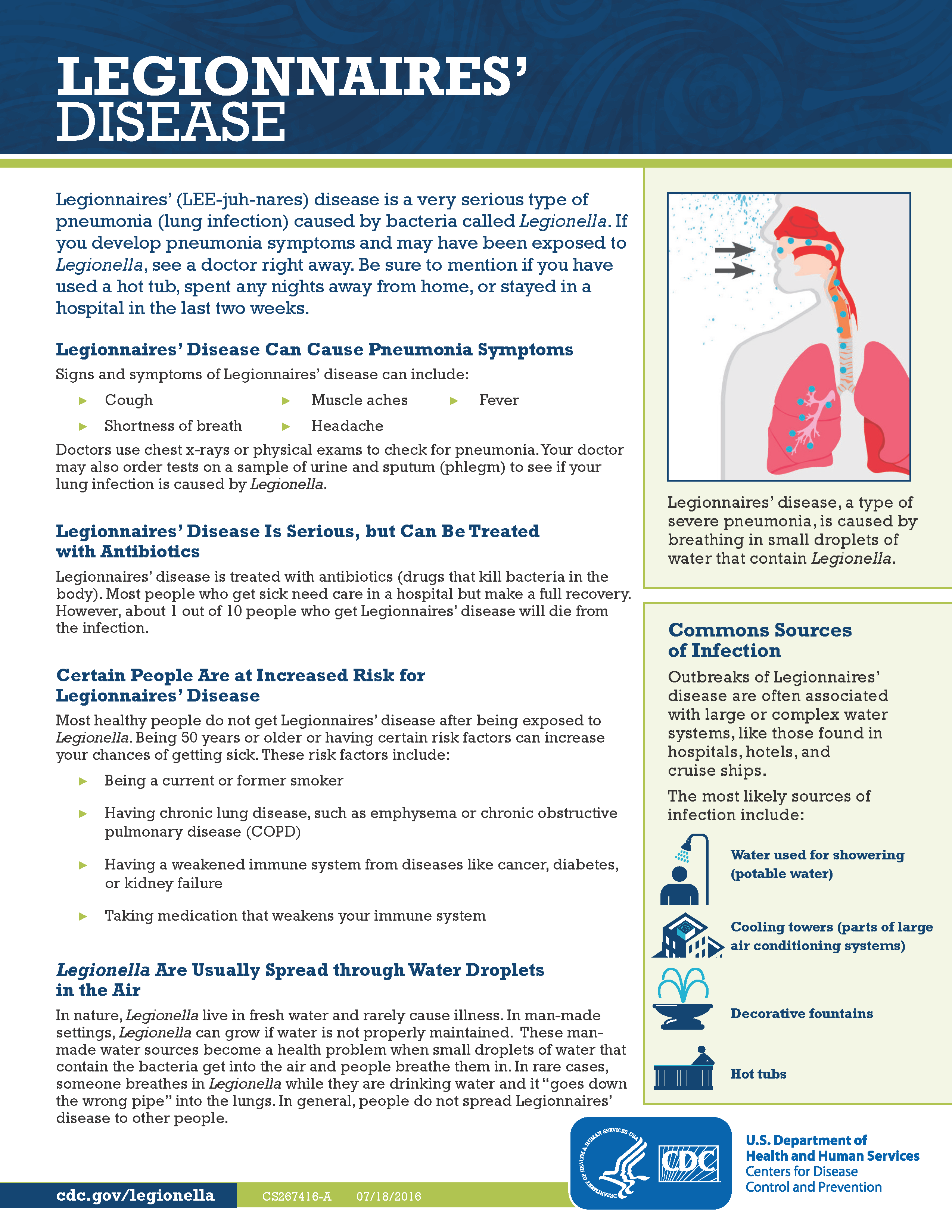The Lexington-Fayette County Health Department is seeing an increase in cases of Legionnaire’s disease, a serious type of pneumonia caused by Legionella bacteria.
The increase of use of outdoor pools and hot tubs during the summer, combined with recent rainfall and the potential for stagnant water, creates a need for reminders about Legionnaires’ disease.
If you operate or visit a public pool, spa or hot tub, please be mindful of this information:
General Disease Info:
- Legionella can cause Legionnaires’ disease and Pontiac fever, collectively known as legionellosis.
- Scientists named the bacteria after an outbreak in Philadelphia in 1976. During that outbreak, many people who went to an American Legion convention got sick with pneumonia (lung infection).
- Health departments reported nearly 10,000 cases of Legionnaires’ disease in the United States in 2018. However, because Legionnaires’ disease is likely underdiagnosed, this number may underestimate the true incidence. A recent study estimated that the true number of Legionnaires’ disease cases may be 1.8–2.7 times higher than what is reported.
- About one in 10 people who gets sick from Legionnaires’ disease will die.
- People can get Legionnaires’ disease or Pontiac fever when they breathe in small droplets of water in the air that contain Legionella.
- In general, people do not spread Legionnaires’ disease to other people. However, this may be possible under rare circumstances.
- Legionella occurs naturally in freshwater environments, like lakes and streams. It can become a health concern when it grows and spreads in human-made building water systems.
People at risk
Certain groups of people are more likely to get Legionnaires’ disease:
- People 50 years of age or older
- Current or former smokers
- People with chronic lung disease
- People who have health problems or take medicines that lower their body’s ability to fight germs and sickness—such as people whose immune systems are weakened because of cancer, an organ transplant, or HIV
Places legionella can grow
- Showerheads are only one possible source of potable water exposure. Spending time near sink faucets and aspiration of drinking water or ice chips are possible routes of transmission, particularly among immunocompromised patients.
- Being in or near a hot tub or hydrotherapy tub while it is turned on is a possible exposure risk because of the ability to aerosolize water containing Legionella.
- Legionella are unlikely to grow in typical swimming pools because water temperatures are usually too cold. However, you should sample pools if they are associated with a possible exposure or temperatures are within the permissive range (i.e., 77–113°F).
- Decorative fountains are a possible exposure source for Legionella, particularly in enclosed spaces.
- Submerged lighting and warm ambient temperatures in fountains can contribute to Legionella growth.
General Legionella Information
https://www.cdc.gov/legionella/downloads/fs-legionnaires.pdf
Legionella and Hot Tubs/Spas
https://www.cdc.gov/healthywater/pdf/swimming/resources/legionella-factsheet.pdf

